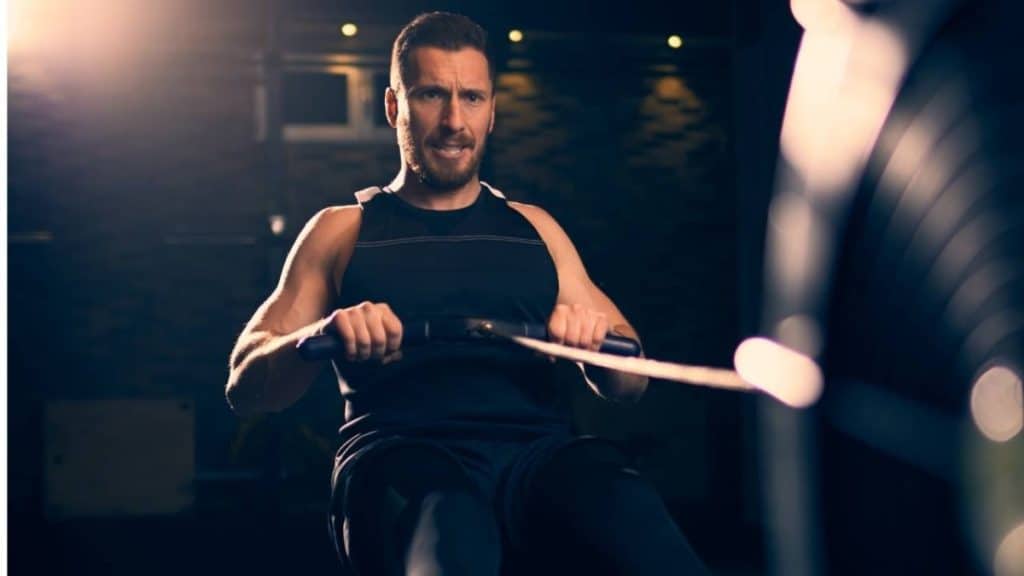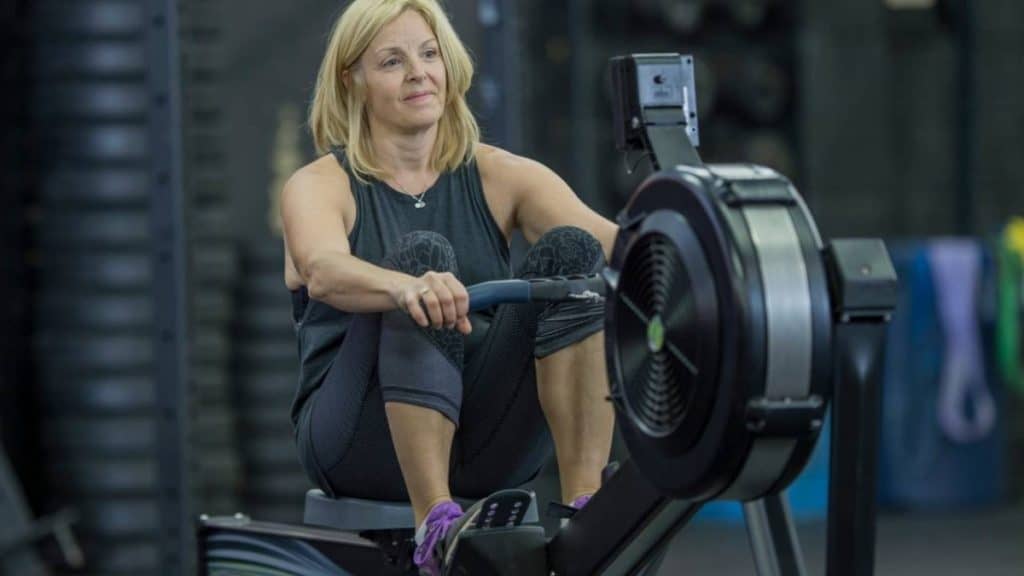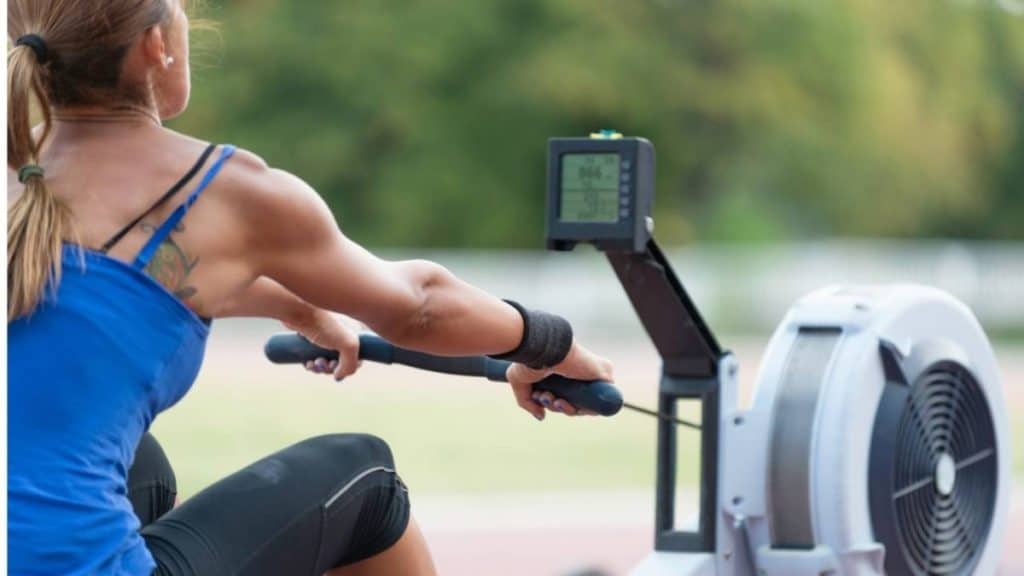
Rowing 1000m is an excellent workout that incorporates cardio, endurance, strengthening and building muscle mass all in one exercise. But, this is an intense activity, and beginners should start slowly and briefly. More advanced and experienced rowers can push that to as much as they can tolerate within reason.
Table of Contents
Average Time to Row 1000m
On average, it will take between 03:50 – 04:30 to row 1000 meters for most beginners. 1000 meters will take advance rower 03:10, and the world recorder for 1000 metres is 02:48. Men are generally 30 seconds faster than women for the same age group.
Regardless of experience and skill level, it’s a good idea to know how long it takes to row. The average rowing time for 1000 meters will depend on the gender, age, and general state of fitness. You can rely on your 100-meter time to calculate your 1000 meter time because it’s a general guideline.
–> If you’re a man and you can row 100 meters in 12 seconds, your 1000 meter time would be approximately 3 minutes and 30 seconds.
–> If you’re a woman and you can row 100 meters in 14 seconds, your 1000 meter time would be approximately 4 minutes.
Understand that 1000 meters is rather intense and not recommended for beginners for the first few attempts. But, once strength, tolerance and endurance build-up, it’s an easy distance that should become part of a regular exercise regimen.
Average Time To Row 1000 Meters For Men

On average, a male will take around 3:40 to row 1000 meters. This time can be lower or higher depending on the individual’s level of fitness, weight, and age. Regular rowing will help improve your time because your body will become more efficient at the movement.
| Age | Average time to row 1000m (Men) |
| 90 | 05:38 |
| 85 | 05:15 |
| 80 | 04:51 |
| 75 | 04:38 |
| 70 | 04:24 |
| 65 | 04:15 |
| 60 | 04:05 |
| 55 | 03:58 |
| 50 | 03:51 |
| 45 | 03:46 |
| 40 | 03:42 |
| 35 | 03:39 |
| 30 | 03:38 |
| 25 | 03:38 |
| 20 | 03:39 |
| 15 | 03:51 |
| 10 | 04:26 |
Rowing is a full-body workout that can help you build muscle, burn calories, and enhance your fitness. But with so many indoor rowers on the market, how do you know which one is right for you? Check out my Top 5 Rowing Machines For 2023

Average Time To Row 1000 Meters For Women
On average, a female will take around 4:35 to row 1000 meters. This time can be lower or higher depending on the individual’s level of fitness, weight, and age. Regular rowing will help improve your time because your body will become more efficient at the movement.
| Age | Average time to row 1000m (Men) |
| 90 | 08:34 |
| 85 | 07:23 |
| 80 | 06:11 |
| 75 | 05:51 |
| 70 | 05:31 |
| 65 | 05:20 |
| 60 | 05:08 |
| 55 | 04:59 |
| 50 | 04:49 |
| 45 | 04:39 |
| 40 | 04:35 |
| 35 | 04:35 |
| 30 | 04:35 |
| 25 | 04:28 |
| 20 | 04:31 |
| 15 | 04:50 |
| 10 | 04:53 |
Check out my big rowing data analytics that contains every rowing distance by age and gender in a full comparison table for beginners and intermediates. You can compare your average rowing times against every distance in your age and ability group.
Gender and age play a huge role in the length of time someone can row 1000 meters. This is regardless of skill, experience or weight. In general, women can row 1000 meters for about four minutes. Men, on the other hand, can do it in a few seconds over three minutes.
But, younger girls around 10 years of age will take closer to five minutes where as boys of the same age will go for just under five minutes. As you can see, it runs the gamut depending on the myriad of variables.
The following charts indicate the time it takes for males and females to row. This includes age and experience level. There are two measurements of time in conjunction with experience levels. One is for performing a 500-meter split and the other is the total time for 1000 meters.
Other Helpful Rowing Distances
- Average Time to Row 100m
- Average Time to Row 500m
- Average Time to Row 2000m
- Average Time to Row 5000m

How Many Calories Will You Burn When Rowing 1000 Meters?
The number of calories burned when rowing 1000 meters will depend on body weight. Typically, someone who weighs 185 pounds will burn more calories than someone who weighs 140 pounds. To illustrate, the average 185-pound person can burn about 422 calories in an hour using a moderate pace.
This translates to covering 1000 meters in about five minutes, which means burning about seven calories within one minute. Therefore, the average 185-pound individual can burn somewhere in the ballpark of 35 calories per 1000 meters (for the complete post on how many calories you burn rowing 1000m read this article).
The following table indicates how many calories a person can burn by rowing depending on weight. This is for an average five-minute workout that ranges from moderate to vigorous intensity.
| Weight | Moderate | Vigorous |
| 110 | 20 | 26 |
| 120 | 22 | 28 |
| 140 | 26 | 33 |
| 150 | 28 | 35 |
| 160 | 30 | 38 |
| 170 | 32 | 40 |
| 180 | 34 | 42 |
| 190 | 36 | 45 |
| 200 | 38 | 47 |
| 220 | 41 | 52 |
| 240 | 45 | 57 |

Is It Advisable to Row 1000 Meters Every Day?
Rowing 1000 meters every day is a breeze and a usual part of a typical person’s workout, regardless of weight, age or gender. But, those who are just starting out should take things at a moderate pace and do 1000 meters as a “split.”
This means rowing 500 meters and then stopping for a few moments. Rest, catch your breath and then continue for another 500 meters. Once you get accustomed to the intensity, then you can do it continually. In fact, the meditative action of the rowing may actually make the time fly by.
Many people report rowing for an hour and being so involved with the exercise, they don’t realize they rowed several thousand meters. However, it is intense and you can injure yourself if you row to such an extent without slowly working your way into it.
Average Time to Row 1000m Summary
If you’re new to rowing, you might be wondering how long it takes to row 1000m indoors. According to data from Condition and Nutrition, it will take most beginners between 03:50 – 04:30 to row 1000 meters on average. However, this time can vary depending on your age, gender, and fitness level.
It’s important to note that as you become more experienced with rowing, your time will likely improve. Advanced rowers can complete 1000m in around 03:10, while the world record for the fastest time is an impressive 02:39.5.
If you’re just starting out with rowing, don’t worry too much about your time at first. Focus on proper form and technique before trying to improve your speed. As you become more comfortable with the movement and build up your endurance, you’ll naturally start to see improvements in your time.
